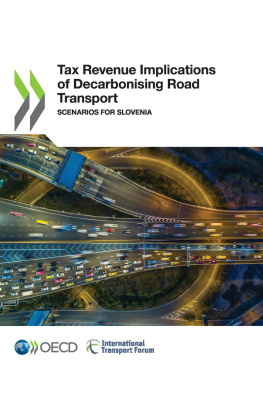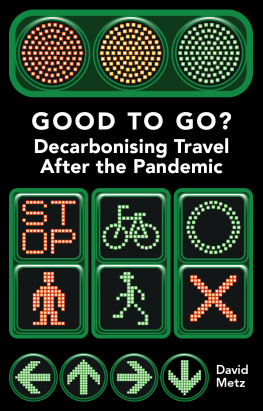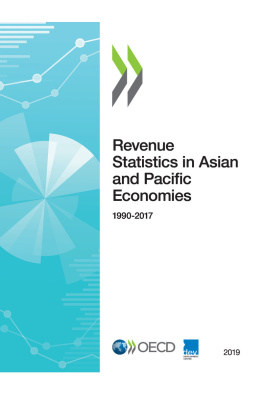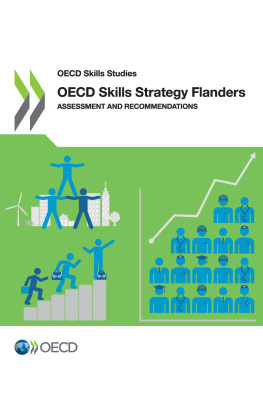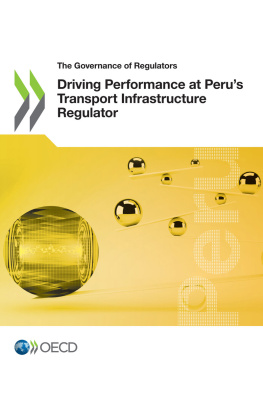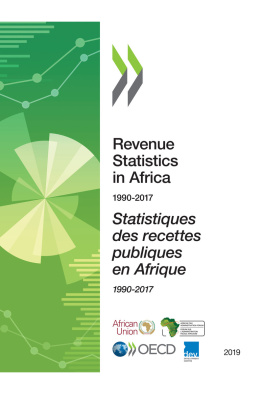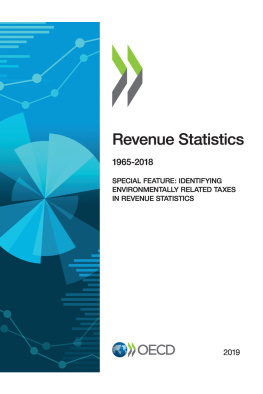OECD and ITF - Tax Revenue Implications of Decarbonising Road Transport
Here you can read online OECD and ITF - Tax Revenue Implications of Decarbonising Road Transport full text of the book (entire story) in english for free. Download pdf and epub, get meaning, cover and reviews about this ebook. year: 2019, publisher: OECD Publishing, genre: Politics. Description of the work, (preface) as well as reviews are available. Best literature library LitArk.com created for fans of good reading and offers a wide selection of genres:
Romance novel
Science fiction
Adventure
Detective
Science
History
Home and family
Prose
Art
Politics
Computer
Non-fiction
Religion
Business
Children
Humor
Choose a favorite category and find really read worthwhile books. Enjoy immersion in the world of imagination, feel the emotions of the characters or learn something new for yourself, make an fascinating discovery.
- Book:Tax Revenue Implications of Decarbonising Road Transport
- Author:
- Publisher:OECD Publishing
- Genre:
- Year:2019
- Rating:3 / 5
- Favourites:Add to favourites
- Your mark:
- 60
- 1
- 2
- 3
- 4
- 5
Tax Revenue Implications of Decarbonising Road Transport: summary, description and annotation
We offer to read an annotation, description, summary or preface (depends on what the author of the book "Tax Revenue Implications of Decarbonising Road Transport" wrote himself). If you haven't found the necessary information about the book — write in the comments, we will try to find it.
OECD and ITF: author's other books
Who wrote Tax Revenue Implications of Decarbonising Road Transport? Find out the surname, the name of the author of the book and a list of all author's works by series.
Tax Revenue Implications of Decarbonising Road Transport — read online for free the complete book (whole text) full work
Below is the text of the book, divided by pages. System saving the place of the last page read, allows you to conveniently read the book "Tax Revenue Implications of Decarbonising Road Transport" online for free, without having to search again every time where you left off. Put a bookmark, and you can go to the page where you finished reading at any time.
Font size:
Interval:
Bookmark:
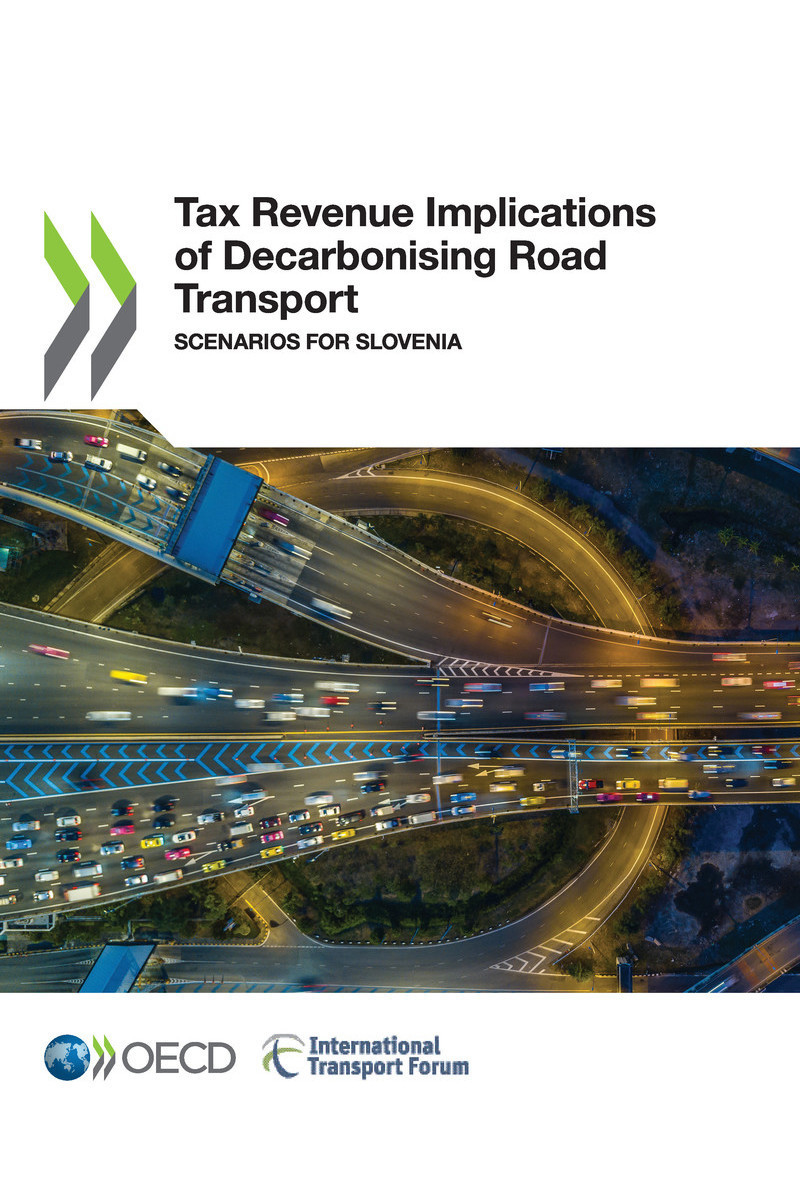
OECD/ITF (2019), Tax Revenue Implications of Decarbonising Road Transport: Scenarios for Slovenia , OECD Publishing, Paris, https://doi.org/10.1787/87b39a2f-en .
This report investigates how tax revenue from transport fuels could evolve over time as vehicles rely less on fossil fuels, providing a conceptual framework and data-driven analysis. Reducing the reliance on fossil fuels in the transport sector is a welcome development that will reduce dependence on fossil fuels and improve climate and health outcomes. However, under current settings, reduced fuel use will also lead to a loss of tax revenues, which may put stress on government budgets. Based on simulations for the Republic of Slovenia, the report assesses the taxation of road transport and investigates how tax policy could adapt to declining fossil fuel use in the long term, while maintaining revenues at current levels.
Developing analytical frameworks and data-driven analysis is crucial to understand the various interactions between tax policy and decarbonisation, which is necessary to support OECD member and non-member countries ensure that they understand the importance of undertaking future tax reforms in order to secure sustainable revenue sources over the long term.
This report was discussed by the OECDs Joint Meetings of Tax and Environment Experts. It was approved by the Committee on Fiscal Affairs and the Environment Policy Committee on 19 April 2019, and prepared for publication by the OECD Secretariat and the International Transport Forum (ITF).
This report and the underlying analysis was developed by Luisa Dressler (Centre for Tax Policy and Administration) and Elisabeth Windisch (International Transport Forum) under the guidance of Kurt Van Dender (Centre for Tax Policy and Administration).
The authors wish to thank Marko Potonik (Ministry of Finance, Republic of Slovenia), Apolonija Oblak Flander (Statistical Office, Republic of Slovenia) and Matja esen (Institut Joef Stefan) for their assistance with the provision of data, as well as their suggestions, inputs and comments received at various stages of preparing the analysis and the report. The authors also thank Marjan Nahtigal (Ministry of Infrastructure, Republic of Slovenia) for their suggestions.
Comments and suggestions by colleagues at the International Transport Forum and the OECD are gratefully acknowledged: Nils Axel Braathen, David Bradbury, Florens Flues, Marie-Aurlie Elkurd, Karena Garnier, Hazel Healy, Jari Kauppila, Michael Kloth, Ronan Mac Erlaine, Michael Sharrat and Jonas Teusch.
Excise duties on fuel used in road transport represent a significant share of tax revenue in several countries. Under current policy settings, this tax revenue base will shrink as the fuel-efficiency of internal combustion engines improves and the electrification of the transport sector progresses, driven by policy commitments or the declining costs of electric vehicles. Eroding tax bases lead to declining revenues, which puts stress on government budgets in the long run. Policymakers need to anticipate the potential decline of fuel tax revenues and decide whether and how to respond.
Tax Revenue Implications of Decarbonising Road Transport: Scenarios for Slovenia analyses the revenue implications of potential reductions of fuel consumption in road transport, and investigates potential policy responses assuming that the objective is to maintain total tax revenue associated with road transport. The potential to raise tax revenue fairly and efficiently depends on tax design features beyond revenue stability, such as external cost management, administrative costs as well as fairness and equity concerns. These considerations are discussed in the report.
In the Republic of Slovenia, 14.6% of total tax revenue collected at the central government level in 2016 came from excise duties and carbon taxes levied on diesel and gasoline used in road transport. The report provides an in-depth assessment of the Slovenian transport tax system, focusing on the three main tax bases in the sector: vehicles, fuel use and road use. It explores revenue impacts under current policy settings and for different scenarios on the take-up of new vehicle technologies. Against this background, it then analyses different tax policy reforms with a 2050 horizon. The tax reforms include changes to fuel and carbon taxes, vehicle taxes and distance-based charges, and consider the potential behavioural responses to tax reform. Together, the scenarios describe potential revenue erosion in road transport and orders of magnitude of alternative tax policy response to compensate for it.
The analysis is based on a model developed for the purpose of this study and which links tax revenues to potential developments of tax bases in the long run. The model combines detailed micro- and administrative data with scenarios of technology take-up. While the evolution of technologies and vehicle fleets is uncertain, the report applies scenario analysis to provide a plausible narrative about potential tax base developments, with no predictive intent. The model is flexible and applicable to a broad set of countries with varying tax policy questions. It is also capable of handling data sources of different granularity.
Key findings:
Under current policies, tax revenues from diesel and gasoline use in private cars is likely to decline substantially in the coming decades in Slovenia.
Under the assumption that fuel-efficiency improves in line with European standards until 2030 and that alternative fuel technologies account for roughly 60% of new car purchases in 2050, total tax revenues from fuel used in passenger cars in Slovenia would drop by 56% between 2017 and 2050 if demand for cars and car use develops as expected.
The picture for trucks is different, with a less pronounced drop in fossil fuel use over the 2050 horizon, due to a slower expected take-up of alternative technologies. Furthermore, Slovenias current toll system for trucks provides an effective means to raise revenue independently of fuel use.
Font size:
Interval:
Bookmark:
Similar books «Tax Revenue Implications of Decarbonising Road Transport»
Look at similar books to Tax Revenue Implications of Decarbonising Road Transport. We have selected literature similar in name and meaning in the hope of providing readers with more options to find new, interesting, not yet read works.
Discussion, reviews of the book Tax Revenue Implications of Decarbonising Road Transport and just readers' own opinions. Leave your comments, write what you think about the work, its meaning or the main characters. Specify what exactly you liked and what you didn't like, and why you think so.

